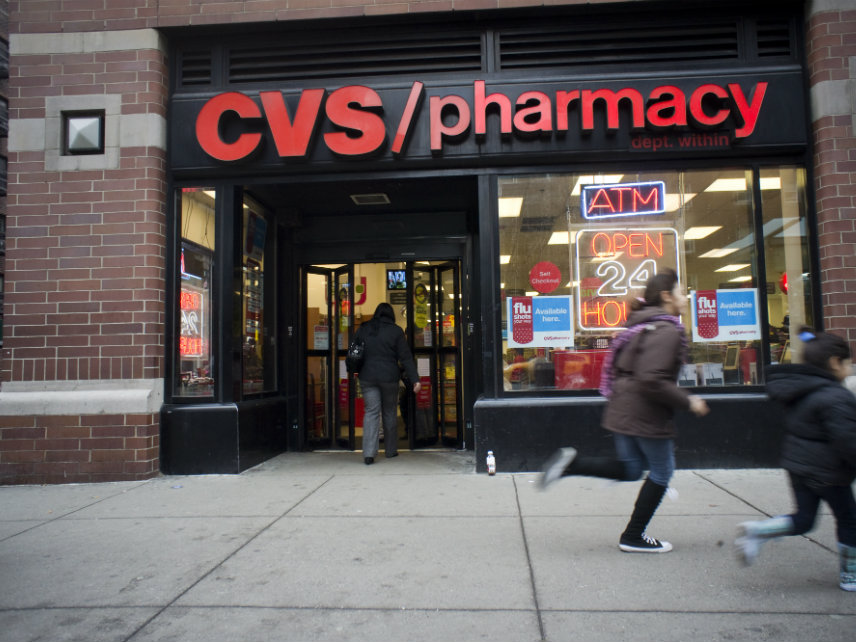CVS Pharmacy, America's Largest Drug Store Chain, Will Carry CBD Products
The rapid social and commercial acceptance of marijuana and marijuana-related products continues. Government still lags behind.

The rapid social and commercial acceptance of marijuana and marijuana-related products continues apace, with America's largest pharmacy chain announcing it will begin carrying cannabidiol (CBD) oil.
Curaleaf Holdings Inc. announced Wednesday that some of its CBD products would be sold at CVS stores in at least eight states, Marketwatch reported Thursday. In a statement provided to Marketwatch, CVS said it was already selling CBD products in eight states—Alabama, California, Colorado, Illinois, Indiana, Kentucky, Maryland, and Tennessee. Recreational marijuana is legal in California and Colorado, while medical marijuana is legal in Illinois and Maryland, and the other four states have legalized CBD products that are low in tetrahydrocannabinol (THC), the more potent compound contained in marijuana.
The federal government's excruciatingly slow acceptance of CBD means that only one product, the anti-siezure drug Epidiolex, has received FDA approval. Other CBD products made from marijuana remain illegal under federal law, while CBD products made from hemp now reside in a legal grey area after the 2018 Farm Bill saw hemp decriminalized at the federal level.
As Reason's Mike Riggs explored in a February feature, there's still a raging debate over the medical value of CBD even though most states have realized that there's nothing dangerous about letting people use it:
The idea that CBD is a vitamin, or should be treated like one, is an increasingly popular argument among cannabis reform advocates. Armentano and Cotte both mentioned it in interviews as perhaps the ideal way forward. The FDA could require marketers of cannabis products to undergo facility inspections, and it could enforce strict labeling requirements, as it does with nutritional supplements. But it wouldn't require cannabis products to undergo extensive clinical trials, as it does now…
Treating CBD products like nutritional supplements would, of course, require the FDA to cede some of its power. The agency can entirely prevent a pharmaceutical drug from going to market, because pharmaceuticals are expensive to make and their value is explicitly tied to FDA approval. By comparison, nutritional supplements are cheaper to make and don't require FDA approval before going to market. Nutritional supplement companies are like the turtles in a Mario Brothers game. The FDA can and does bop them, but the ratio of regulators to regulatees favors the latter.
That sort of regulation sounds far better than the type of overzealous enforcement that was on full display earlier this week in Duncanville, Texas, where armed police officers raided two stores and seized more than $50,000 in CBD products, according to local news reports.
As CBD goes more more mainstream, such raids will be increasingly difficult to rationalize. It's one thing for cops to claim that a small tobacco shop was selling a dangerous product, but much more difficult to make the case that a national chain of pharmacies is endangering the public in the same way.
The war on drugs won't be won only in state capitols and county counthouses, it seems, but also under the flurescent lighting of the neighborhood drug store where you get your multivitamins and 99-cent cans of Arizona iced tea.


Show Comments (19)